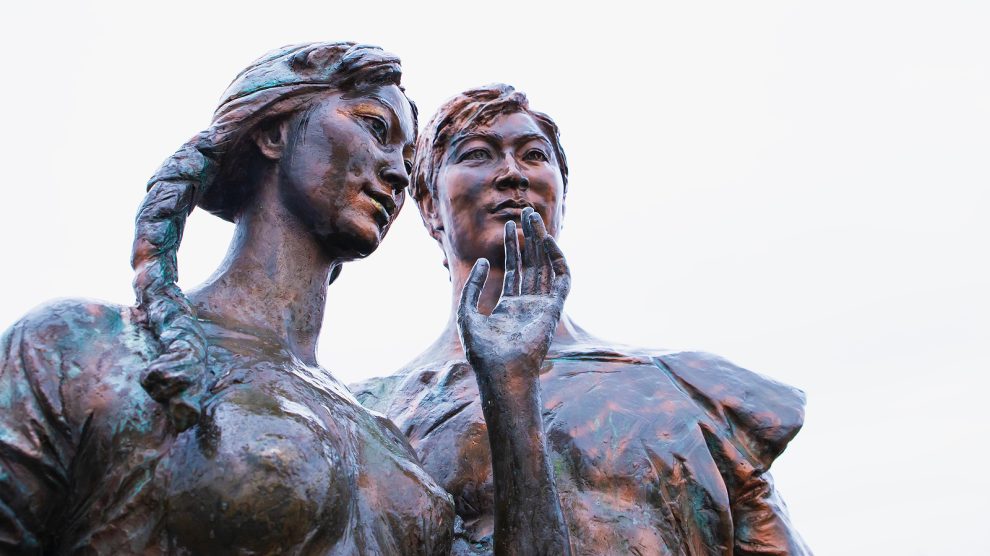As investment and trade increase, Kazakhstan’s economy is performing strongly even as oil prices and production seem set to decline.
With 19.2 million people and an area the size of Western Europe, Kazakhstan is the ninth-largest country and largest landlocked country in the world. It is home to steppes inhabited by nomadic pastoralists, mountains to which apples and walnuts are native, and vast reserves of fossil fuels and critical minerals.
A founding member of the Eurasian Economic Union’s (EEU) single market, Kazakhstan is also a member of the Collective Security Treaty Organisation (CSTO). It has nevertheless pursued a multi-vector foreign policy and maintains generally warm relations with the West and China as well as Russia. Together with Uzbekistan, it has led efforts to engage with Afghanistan’s unrecognised Taliban government in the hope of securing trade routes and maintaining regional stability.
- How Kazakhstan is emerging as a regional leader in digital transformation
- Foreign investors look set to back Kazakhstan’s economic reset
- Kazakhstan could be key to Europe’s energy transition
Kazakhstan was ruled by Nursultan Nazarbayev from its independence in 1991 until his resignation from the presidency in 2019. Unrest in January 2022—which culminated in the CSTO’s first-ever military intervention—resulted in Nazarbayev’s dismissal from his remaining post as chairman of the country’s security council by his successor and the current president, Kassym-Jomart Tokayev.
Nazarbayev and his family had maintained significant economic and political power after his exit from the presidency, but Tokayev has pursued reforms stripping them of privileges.
Investment and trade
While extractive industries have historically dominated Kazakhstan’s economy, the government has increasingly promoted foreign direct investment, start-ups, and digital transformation.
Kazakhstan attracted over 320 billion US dollars of FDI in its first three decades and is now home to 14 Special Economic Zones with tax incentives and “special legal regimes”. The Astana International Financial Centre (AIFC) launched in 2018 and allows businesses to resolve civil and commercial disputes under a legal framework based on English common law.
“The whole idea of creating the AIFC was to show how favourable Kazakhstan is for foreign investors. We’re talking about almost an offshore territory—even according to the Constitution, the AIFC is extraterritorial,” Dr Kuat B. Akizhanov, an economics professor at KazGUU University in Astana, tells Emerging Europe. “Trust is pretty strong between the government and the foreign investors.”
As Western firms have looked to end reliance on supply chains through Russia in the aftermath of Moscow’s 2022 invasion of Ukraine, interest in alternative, Trans-Caspian trade routes as spiked.
Traffic on the so-called Middle Corridor, which includes Kazakhstan, increased by 250 per cent last year, reaching 1.5 million tonnes, but the current infrastructure can only carry five per cent of the volume of trade handled by rail across Russia.
Middle Corridor countries (the others are Azerbaijan and Georgia) still lack any customs union, joint tariff coordination, or transnational digital integration, and last year’s surge in volumes exposed bottlenecks and capacity shortages along the route, increasing transaction costs and preventing the realisation of expected container cargo growth. Kazakhstan’s government has made addressing these issues a priority.
“Hard infrastructure investments in ports of Aktau and Kuryk, as well as logistics infrastructure upgrade in main airports have been already prioritised in the September address-to-the-nation by President Tokayev who sees the transport and logistics industries as a major growth driving force,” Dr Alexandra Bykova, an expert at the Vienna Institute for International Economic Studies (wiiw) who authored its April forecast for Kazakhstan, tells Emerging Europe.
A new study on sustainable transport connections between Europe and Central Asia, conducted by the European Bank for Reconstruction and Development (EBRD) and led and funded by the European Union, identified the Central Trans-Caspian Network (CTCN) through southern Kazakhstan as the most sustainable Middle Corridor route but emphasised that not only hard infrastructure but soft connectivity—regulation, digitisation, and services required to maintain the network’s long-term integration and sustainability—would be key to the development of the route.
Economic outlook
Investments in transport, logistics, and soft connectivity offer long-term benefits to the country’s already strong economy.
“Robust economic performance was observed in the first half of 2023 relative to the same period of previous year (+5.1 per cent real GDP growth),” says Dr Bykova, noting this is driven mainly by consumption and investments.
“On the negative side, this led to a rapid increase in imports and, thus, a rapid deterioration of current account balance to -3.5 per cent of GDP over first six months. OPEC Plus oil production cuts since May until the end of the year, production disruptions due to power outages in July and August, along with lower than previous year oil prices will add to a weakness of external sector in 2023.”
Stable population growth generates a steady influx of workers into the labour market, and the unemployment rate remains stable at around 4.8 per cent. However, wages vary widely between regions and sectors.
“High inflation is unfortunately eroding income and wages in real terms in 2023, despite an increase in minimum wage and wages of public officials earlier this year,” says Dr Bykova. “A renewed increase in minimum wages has been announced for next year to support incomes and avoid social discontent.”
Overall, though, the foundations of Kazakhstan’s economy remain strong. The Vienna Institute forecasts real GDP growth will increase slightly from 3.2 per cent in 2022 to 3.5 per cent in 2023, driven by investments and private consumption, then pick up to four per cent in 2024 and 2025 as inflation subsides and consumption recovers.
Unlike many news and information platforms, Emerging Europe is free to read, and always will be. There is no paywall here. We are independent, not affiliated with nor representing any political party or business organisation. We want the very best for emerging Europe, nothing more, nothing less. Your support will help us continue to spread the word about this amazing region.
You can contribute here. Thank you.


